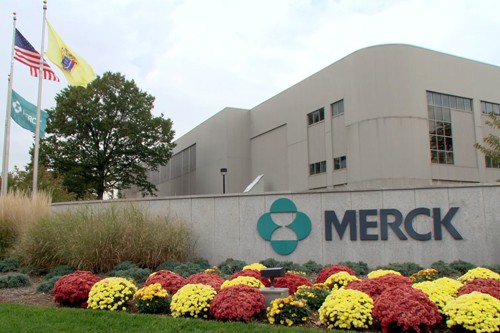
Merck & Co (Merck) – known as MSD outside of the US and Canada – has announced positive topline results from a phase 3 trial investigating Keytruda (pembrolizumab) in combination with chemotherapy as a first-line treatment in patients with human epidermal growth factor receptor 2 (HER2)-negative locally advanced unresectable or metastatic gastric or gastroesophageal junction (GEJ) adenocarcinoma.
The double-blind phase 3 KEYNOTE-859 trial enrolled 1,579 patients who were randomised to receive 200mg Keytruda every three weeks for up to approximately two years in combination with fluoropyrimidine- and platinum-containing chemotherapy, or placebo in combination with chemotherapy.
At a pre-specified interim analysis, Keytruda in combination with chemotherapy showed a statistically significant and clinically meaningful improvement in the trial’s primary endpoint of overall survival versus chemotherapy alone.
Statistically significant and clinically meaningful improvements in progression-free survival and overall response rate were also observed in the all-randomised patient population.
The safety profile of Keytruda was consistent with that observed in previously reported studies, the company reported, with no new safety signals identified.
Merck also outlined its plans to present detailed results from the trial at an upcoming medical meeting, as well as to submit applications to regulatory authorities.
Gastric cancer is the fifth most diagnosed cancer and the fourth leading cause of cancer death worldwide, with nearly 1.1 million new cases diagnosed and more than 768,000 deaths from the disease globally in 2020. Most gastric cancers are adenocarcinomas, which develop from cells in the innermost lining of the stomach.
Because gastric cancer tends to develop slowly over many years and rarely causes early symptoms, most cases go undetected until an advanced stage, with more than 70% of patients with developing advanced-stage disease. The five-year survival rate for patients diagnosed with gastric cancer at an advanced stage is only 6%.
Keytruda is an anti-programmed death receptor-1 (PD-1) therapy that works by increasing the ability of the body’s immune system to help detect and fight tumour cells.
“Despite improvements in cancer care, advanced gastric cancer continues to have one of the lowest five-year survival rates, and new interventions are urgently needed,” said Dr Eliav Barr, senior vice president and head of global clinical development, chief medical officer, Merck Research Laboratories.
He continued: “The results from KEYNOTE-859 show the potential of Keytruda plus chemotherapy to improve survival beyond chemotherapy alone for patients with HER2-negative locally advanced unresectable or metastatic gastric or GEJ adenocarcinoma, regardless of PD-L1 expression.”




